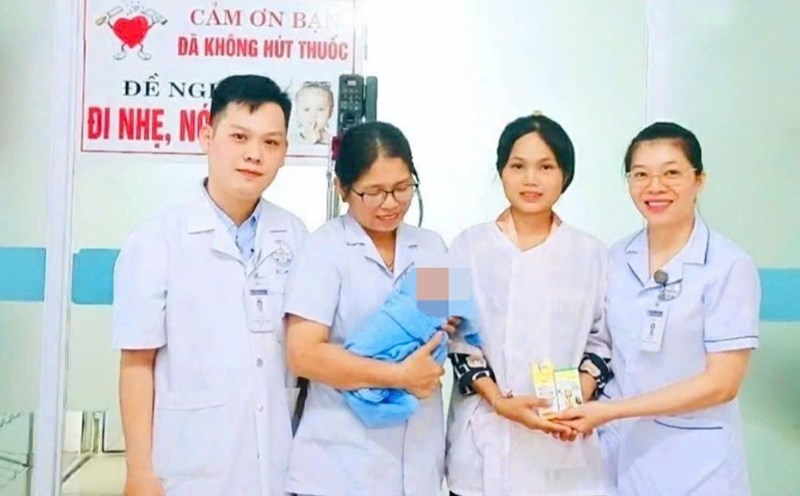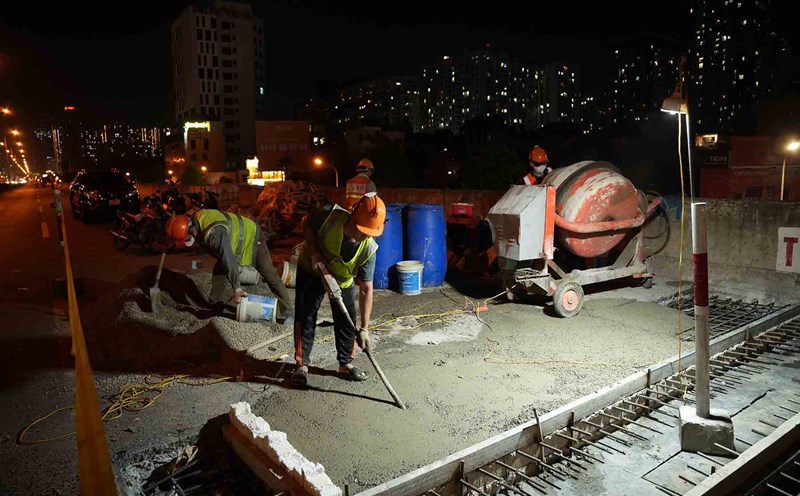Mountainous areas, island communes bring technology to serve the people
In early July, in the mountainous commune of Tra Tan - one of the most difficult areas of Da Nang City - Mr. Ho Van Loi (22 years old) had an unforgettable administrative experience when completing birth procedures for his child. With just a phone connected to a public wifi installed, he can submit an electronic application and be enthusiastically guided by the commune staff. "It took nearly half a day to travel from the top to the commune, I never thought the procedure would be so convenient. Commune officials guide like relatives in the house" - Mr. Loi shared.
Tra Tan commune was established from the old Tra Tan and Tra Giac communes, with an area of over 183km2 and a population of over 6,000 people, most of whom are ethnic minorities. In the old Tra Giac area alone, more than 50% of the population is poor households, many villages do not have electricity, clean water or telecommunication waves. In that situation, the effective implementation of online public services is a great step forward, not only technique - but political efforts and trust from the grassroots.
In Tan Hiep island commune (Cu Lao Cham), although not merging administrative units, the government is still being consolidated according to the 2-level model, with 17 reinforced cadres from Hoi An city (old).
Administrative approach to the people in the heart of the city
According to Lao Dong in Hai Chau ward - the city's central "super ward" established from 5 old wards, with a population of more than 130,000 people (nearly 3 times higher than the standard), the workload also skyrocketed after the merger. The team of officers races every minute to process hundreds of records every day.
At nearly 7:00 a.m., Ms. Tran Thi My Dung went to the ward's Public Administration Center to request confirmation of the current status of the land for the issuance of the book. Although dozens of people arrived first, in just 20 minutes, her application was received and included in the processing process thanks to the digitalization system and the dedicated guidance of the staff at the One-stop Department.
Mr. Nguyen Van Duy - Chairman of Hai Chau Ward People's Committee - shared: "On average, there are more than 300 transactions per day (previously level 5, 6 times), most of which are land records".
Not only Hai Chau, wards such as Ngu Hanh Son and Thanh Khe are also taking advantage of the advantage of connecting infrastructure to quickly process documents through a digital system. Thanks to synchronous investment from the city, the online treatment system at the ward and commune levels operates stably, quickly and smoothly.
Expectations from a pioneering reform model
After a week, thousands of records have been processed in communes and wards of Da Nang. Decentralizing procedures on land, civil status, and social policies to grassroots authorities not only saves time for the people but also helps the administrative apparatus operate more compactly and effectively.
According to Mr. Nguyen Van Duy - Chairman of Hai Chau Ward People's Committee, at first, it was not possible to say that it was easy to do it immediately, because there were many new things, improved and streamlined, so at the end of the day, the ward always had a quick report, recommended arising problems, so that the Central and local authorities could work together to overcome and adjust them. Although he operated at "exhausted capacity", he was still enthusiastic: "All of our staff are professional staff, the number of additional staff from the district should be brought in to work immediately". A noteworthy bright spot is the application of information technology. The city has completed updating more than 2,000 administrative procedures to the National Public Service Portal, while configuring a procedure settlement system for the commune and ward levels. This helps receive and process documents quickly, avoiding congestion.
Mr. Nguyen Thanh Tien - Secretary of Thanh Khe Ward said that the two-level government model not only changes the organization but also promotes the simplification of administrative processes. The tasks transferred to the ward level include more than 1,000 contents, requiring cadres to be more dynamic and flexible.
Working with departments and branches to learn from experience in operating the new model, Chairman of the People's Committee of Da Nang City - Mr. Luong Nguyen Minh Triet - emphasized: "The spirit is not to interrupt, not to miss any work. The city will urgently issue working regulations, promoting the strengths and expertise of cadres".
In particular, reviewing the policies and legal documents that were previously applied by the two localities of Da Nang and Quang Nam differently.











